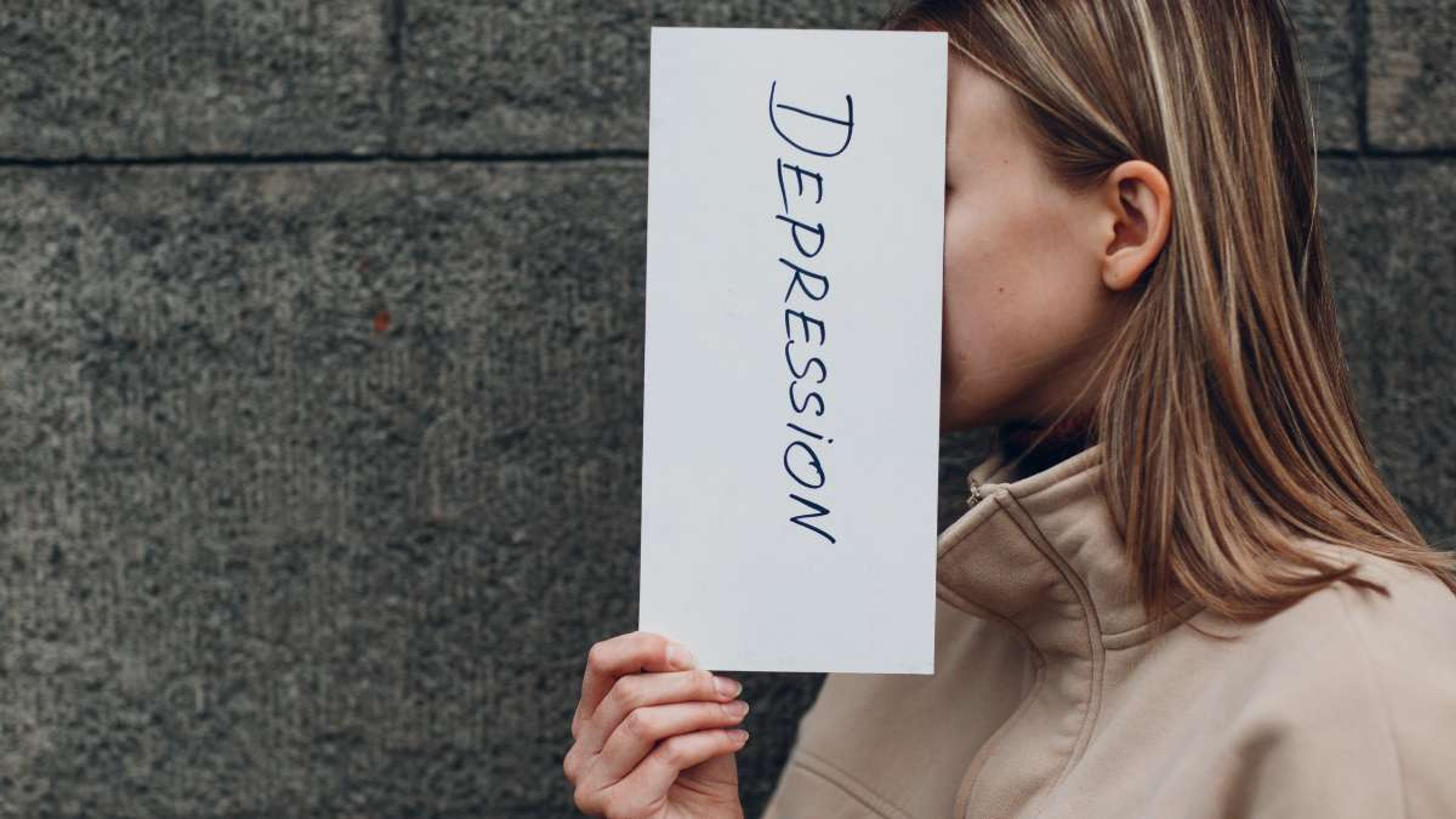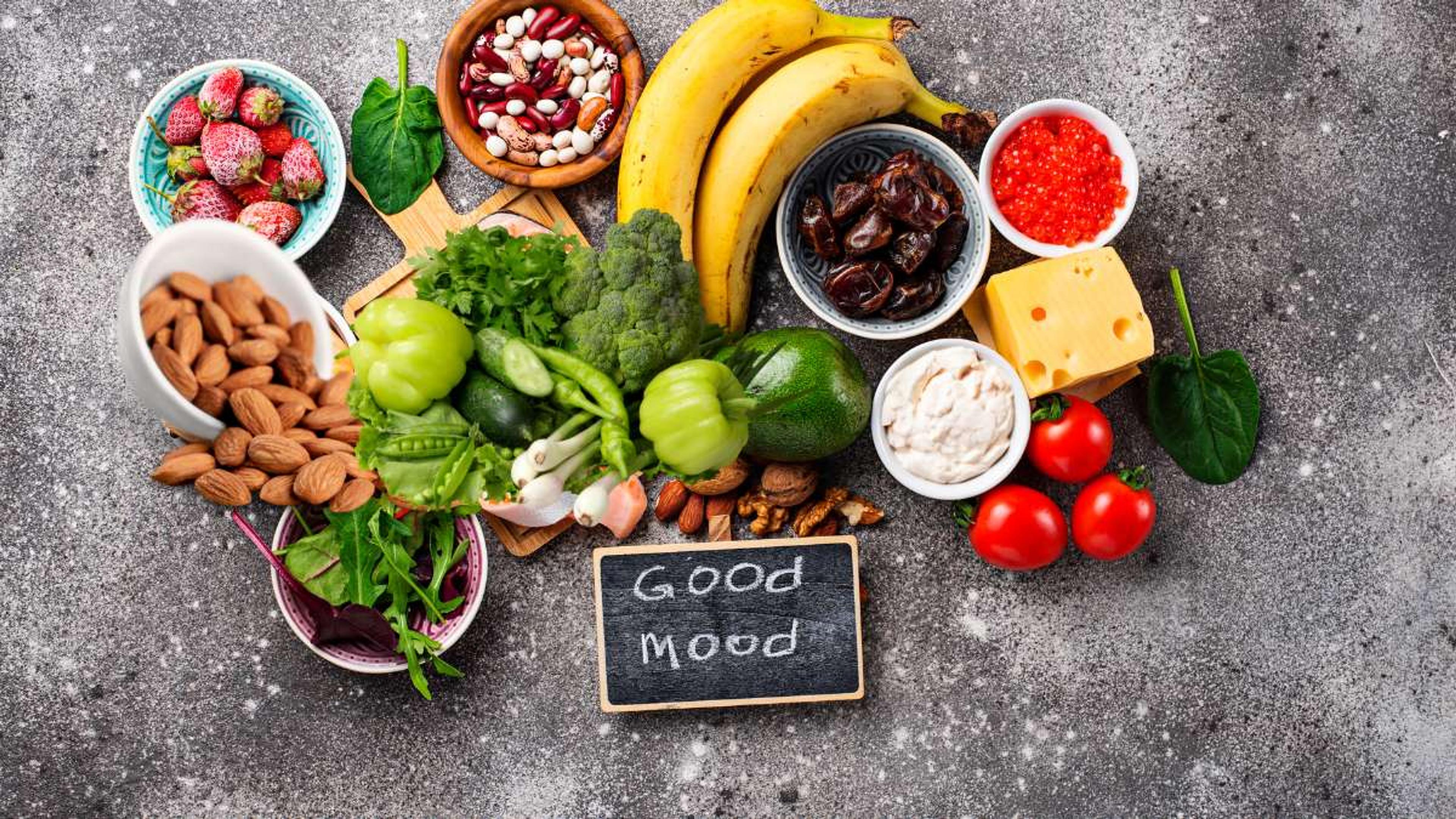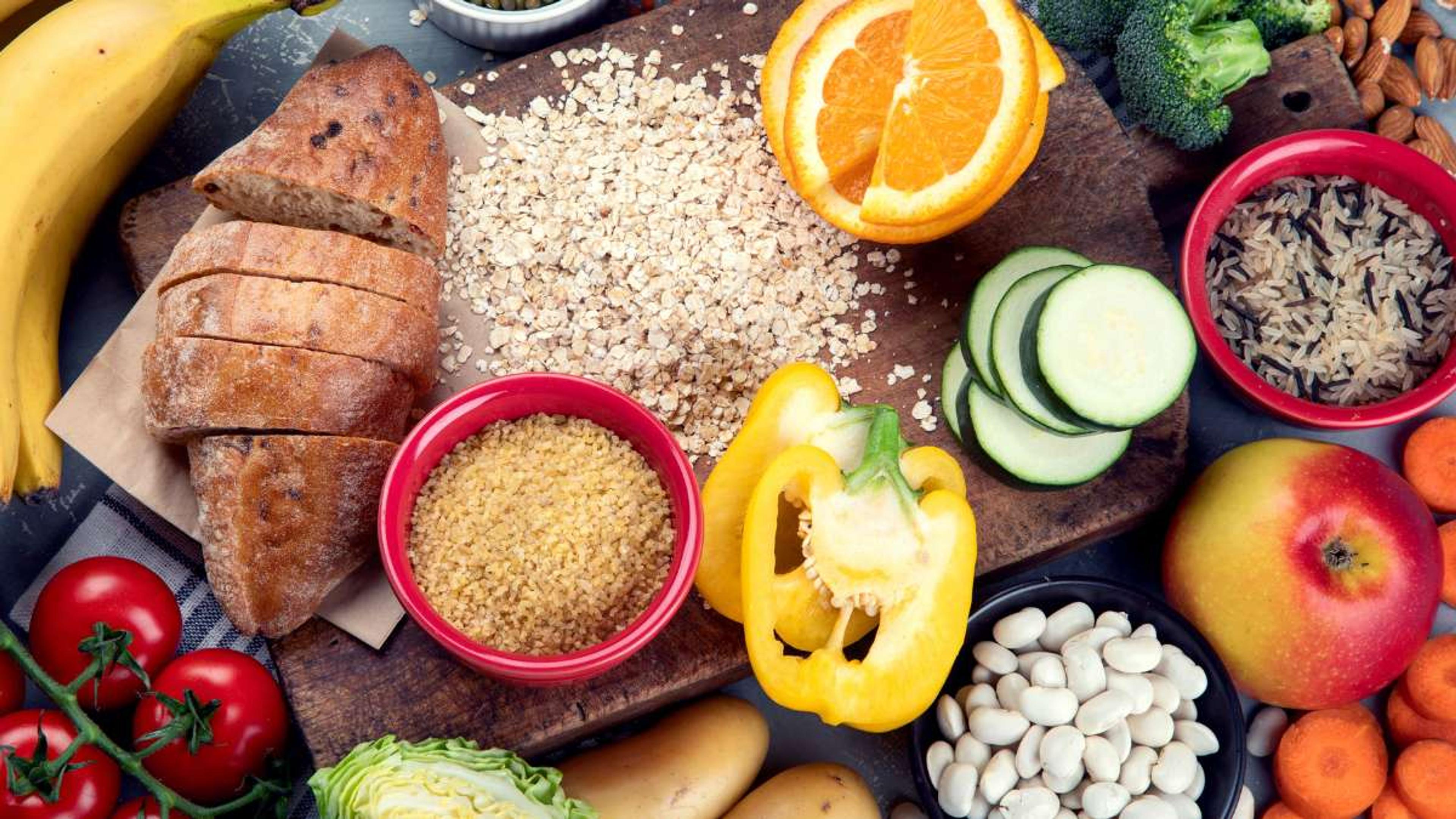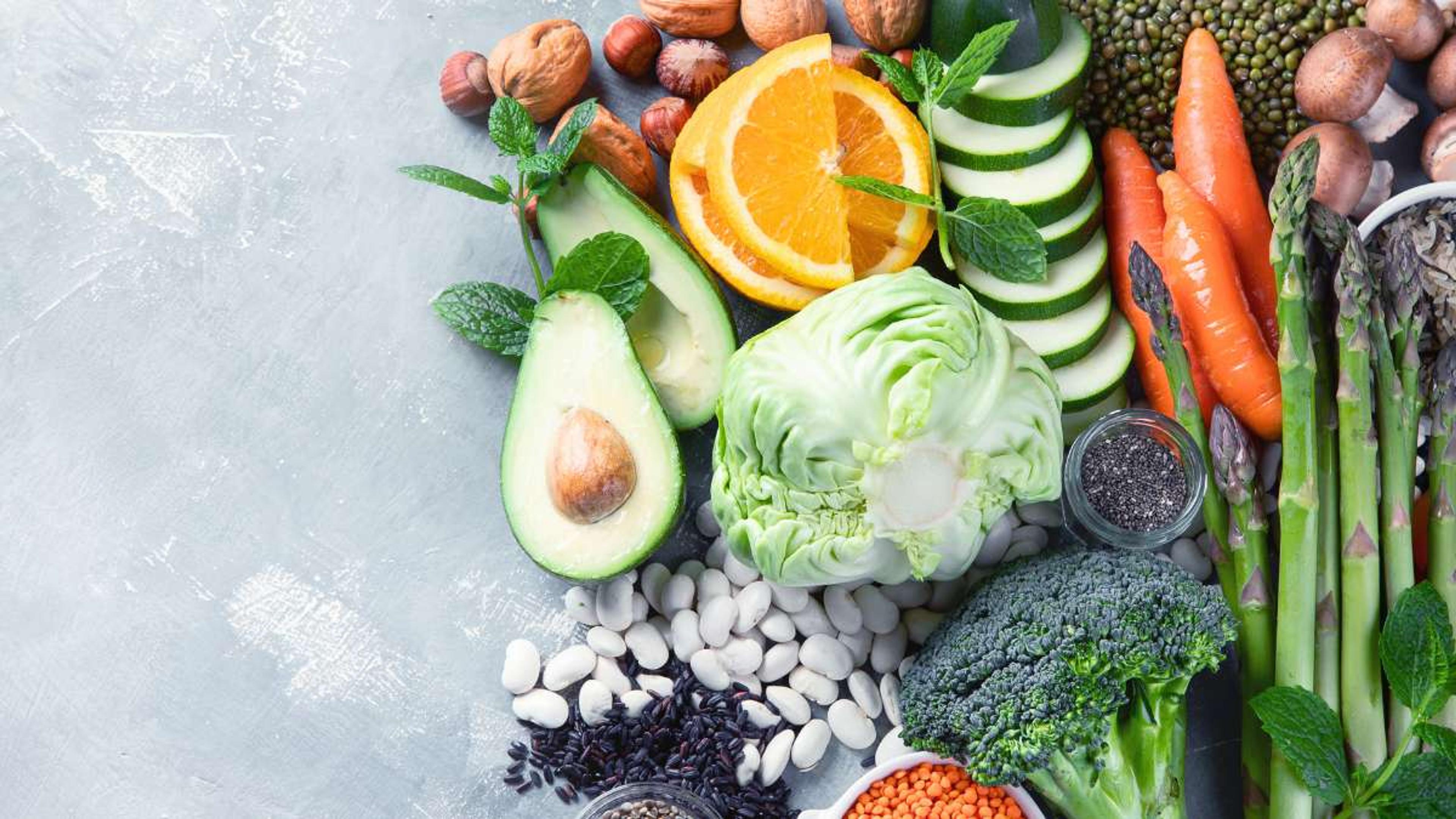Vegan Diet for Depression: The Evidence-Based Approach

- Key Takeaways
- The Connection Between Diet and Mental Health
- Nutrients in a Vegan Diet for Supporting Mental Health
- Benefits of a Vegan Diet for Depression
- Foods to Include in a Vegan Diet for Depression
- Tips for Incorporating a Vegan Diet into Mental Health Treatment
- Conclusion
- FAQs
Depression is a common mental health issue that many individuals struggle to overcome. Dietary choices, in particular adopting a vegan diet, have been linked with improved mood and mental well-being.
This article will delve into the impacts of a vegan diet on depression and how essential nutrients found in plant-based foods can aid your journey towards better mental health. Ready to explore this nourishing path forward? Let's begin!
Key Takeaways
- A vegan diet can potentially improve mood and reduce anxiety levels in individuals with depression.
- Omega-3 fatty acids found in flaxseeds, chia seeds, and walnuts are essential for brain health and can lower the risk of feeling down or depressed.
- Vitamin B12 plays a crucial role in mood regulation and energy levels, which is especially important for vegans to obtain through supplements or fortified foods.
- Including iron-rich plant-based sources like legumes, tofu, and dark leafy greens in a vegan diet supports cognitive function and overall well-being.
The Connection Between Diet and Mental Health
Diet plays a crucial role in overall mental health, with research highlighting the impact of nutritional deficiencies on various mental disorders.

Understanding the impact of diet on mental health
Food plays a big role in how we feel. It can affect our mental health. A good diet helps our brain to work well. Poor eating habits might lead to mental health issues like depression and anxiety.
Some studies show that vegans may have lower mood and energy levels. This is because they might lack some nutrients like B12 or iron, which are important for feelings of happiness and clear thinking.
Other research finds that vegans might feel less depressed, anxious, and tired if they eat high-quality plant foods.
Exploring the link between a vegan diet and depression
The relationship between diet and mental health has been a topic of interest for researchers and health professionals for years. The vegan diet, which excludes all animal products, has been particularly scrutinized for its potential impact on mental well-being. Here's an exploration of the link between a vegan diet and depression:
Potential Benefits:
- Anti-inflammatory Effects: A vegan diet is rich in fruits, vegetables, nuts, seeds, and legumes, which are known to have anti-inflammatory properties. Chronic inflammation has been linked to depression, so a diet that reduces inflammation might have protective effects against depressive symptoms.
- Rich in Antioxidants: Plant-based foods are abundant in antioxidants, which combat oxidative stress. Oxidative stress has been implicated in various mental health disorders, including depression.
- Stable Blood Sugar Levels: A well-balanced vegan diet can help stabilize blood sugar levels, reducing mood swings and potentially decreasing the risk of depression.
Potential Concerns:
- Nutrient Deficiencies: A vegan diet can lead to deficiencies in certain nutrients like vitamin B12, omega-3 fatty acids, iron, and vitamin D, which are crucial for brain health. Deficiencies in these nutrients have been linked to depressive symptoms.
- Tryptophan and Serotonin: Tryptophan, an amino acid found in higher amounts in animal products, is a precursor to serotonin, a neurotransmitter associated with mood regulation. A lack of tryptophan might impact serotonin production, potentially influencing mood.
The link between a vegan diet and depression is complex and multifaceted. It's essential for individuals to ensure they are getting all the necessary nutrients and to be aware of the potential mental health implications. Consulting with a nutritionist or healthcare provider can help in making informed dietary choices.
Nutrients in a Vegan Diet for Supporting Mental Health
A well-balanced vegan diet can offer a plethora of nutrients that are beneficial for mental health. Ensuring adequate intake of these nutrients can help in promoting optimal brain function and emotional well-being. Here are some essential nutrients in a vegan diet that play a pivotal role in supporting mental health:

- Omega-3 Fatty Acids: While often associated with fish, omega-3s can also be found in vegan sources like flaxseeds, chia seeds, walnuts, and hemp seeds. Omega-3s are vital for brain health, and an adequate intake has been linked to reduced symptoms of depression and anxiety.
- Vitamin B12: Crucial for nerve function, a deficiency in vitamin B12 can lead to fatigue, lethargy, and even depressive symptoms. Since B12 is primarily found in animal products, vegans should consider fortified foods or supplements.
- Folate: Found in dark leafy greens, beans, peas, and lentils, folate is a B-vitamin that plays a role in serotonin regulation. Serotonin is a neurotransmitter that regulates mood, and imbalances can lead to depression.
- Iron: Essential for transporting oxygen in the blood, iron deficiency can result in anemia, fatigue, and mood disturbances. Vegan sources of iron include lentils, chickpeas, tofu, quinoa, and fortified cereals. Pairing these with vitamin C-rich foods can enhance iron absorption.
- Zinc: This mineral is crucial for brain function and the production of neurotransmitters. Vegan sources include whole grains, legumes, nuts, and seeds.
- Magnesium: Known for its role in relaxation and stress reduction, magnesium can be found in almonds, spinach, black beans, and avocado.
- Tryptophan: An amino acid precursor to serotonin, tryptophan is found in foods like seeds (pumpkin, chia, sesame), soy products, oats, lentils, and beans.
- Vitamin D: Often referred to as the "sunshine vitamin," vitamin D can influence mood and brain function. While the body can produce vitamin D through sun exposure, fortified vegan foods or supplements can be beneficial, especially in areas with limited sunlight.
- Antioxidants: These compounds combat oxidative stress, which has been linked to mental health disorders. Berries, nuts, dark chocolate, spinach, and artichokes are rich vegan sources of antioxidants.
- Fiber:Found in whole grains, fruits, and vegetables, fiber can promote gut health. Emerging research suggests a strong connection between a healthy gut and improved mental well-being, often referred to as the "gut-brain axis."
In conclusion, a vegan diet can be rich in several nutrients that support mental health. However, it's essential to plan meals carefully and ensure a diverse intake of foods to meet all nutritional needs. Consulting with a nutritionist can provide personalized guidance and recommendations..
Benefits of a Vegan Diet for Depression
A vegan diet may potentially improve mood, reduce anxiety levels, and positively impact overall mental well-being.

Improvement in mood and anxiety levels
A vegan diet has the potential to improve mood and reduce anxiety levels. Many people have reported feeling better mentally and emotionally when following a plant-based diet. In fact, a study found that participants on a vegan diet experienced reduced feelings of depression, anxiety, and fatigue.
They also reported increased productivity and overall well-being. Plant-based diets that focus on unprocessed foods may help to alleviate symptoms of depression, stress, and anxiety.
By incorporating nutrient-rich plant-based foods into their diet, individuals may experience improvements in their mental health and overall quality of life.
Positive effects on overall mental well-being
Following a vegan diet can have positive effects on overall mental well-being. Research has shown that adopting a plant-based diet can lead to reduced feelings of depression, anxiety, and fatigue.
In one study, participants who followed a vegan diet experienced improvements in their mental health and reported increased productivity and well-being. Plant-based diets are rich in nutrients such as omega-3 fatty acids, vitamin B12, iron, and zinc which play crucial roles in brain health and mood regulation.
By incorporating these nutrients through plant-based foods, individuals may experience a boost in their mental well-being and a reduction in symptoms of depression.
Role of plant-based foods in reducing inflammation and oxidative stress
Plant-based foods play a crucial role in reducing inflammation and oxidative stress in the body. These types of foods are rich in antioxidants, which help to protect our cells from damage caused by harmful molecules called free radicals.
By consuming plant-based foods such as fruits, vegetables, whole grains, legumes, nuts, and seeds, we can provide our bodies with an abundance of these beneficial antioxidants. Research has shown that high-quality plant-based diets are associated with lower levels of inflammation and oxidative stress.
Incorporating more plant-based foods into our diet can help support overall health and well-being while reducing the risk of chronic diseases related to inflammation.
Foods to Include in a Vegan Diet for Depression
Include leafy greens and vegetables for essential nutrients, legumes and beans for protein and fiber, nuts and seeds for healthy fats and minerals, as well as whole grains for sustained energy and brain function.

Incorporating leafy greens and vegetables for essential nutrients
Leafy greens and vegetables are important for supporting mental health because they provide essential nutrients. They are rich in vitamins, minerals, and antioxidants that can help improve mood and overall well-being. Here are some leafy greens and vegetables to include in a vegan diet for depression:
- Spinach: It is high in magnesium, which has been linked to improved mood.
- Kale: This leafy green is packed with nutrients like vitamin C, which can help reduce symptoms of depression.
- Broccoli: It contains folate, which plays a role in neurotransmitter production and regulation.
- Brussels sprouts: These vegetables are a good source of vitamin K, which has been associated with reduced risk of depression.
- Bell peppers: They are rich in vitamin C and antioxidants that can support brain health.
Adding legumes and beans for protein and fiber
Legumes and beans are important additions to a vegan diet for their protein and fiber content. They provide a good source of vegetarian protein, which is essential for muscle growth and repair. Additionally, legumes and beans are rich in fiber, which aids in digestion and promotes feelings of fullness. Some popular legumes and beans include lentils, chickpeas, black beans, and kidney beans. These can be added to various recipes like soups, tacos, salads, or even used as the main ingredient in vegetarian burgers or stews. Incorporating legumes and beans into a vegan diet ensures that you get the necessary nutrients for optimal health while maintaining a satisfying and balanced meal plan.
Including nuts and seeds for healthy fats and minerals
Nuts and seeds are great additions to a vegan diet because they provide healthy fats and important minerals. Here are some examples:
- Almonds: They are rich in vitamin E, which is an antioxidant that helps protect brain cells. Almonds also contain magnesium, which can help reduce anxiety and improve sleep.
- Walnuts: These nuts are high in omega-3 fatty acids, which have been linked to a lower risk of depression. Walnuts also provide antioxidants and polyphenols that support brain health.
- Flaxseeds: They are an excellent source of omega-3 fatty acids as well as fiber. Omega-3s help improve mood and reduce inflammation in the body.
- Chia seeds: These tiny seeds are packed with omega-3s, fiber, protein, and minerals like calcium and magnesium. They can be added to smoothies or used as a topping for salads or yogurt.
- Pumpkin seeds: Rich in magnesium, iron, zinc, and antioxidants like vitamin E, pumpkin seeds support brain health and help regulate mood.
- Sesame seeds: These small seeds are rich in calcium, iron, magnesium, and zinc - all important minerals for mental well-being.
Including whole grains for sustained energy and brain function
Whole grains are an important part of a vegan diet for depression. They provide sustained energy and support brain function. Here are some reasons why including whole grains is beneficial:
- Whole grains promote the production of serotonin, a neurotransmitter that can improve mood.
- Whole grains release energy slowly, providing a steady source of fuel for the body and brain.
- The consumption of whole grains is associated with more positive moods compared to a diet that includes meat.
- A vegan diet that includes whole grains may help improve symptoms of depression and overall mental health.
- Incorporating whole grains into a vegan diet can have a positive impact on mental well-being.
Add Fermented Foods to your meals
A great addition to your vegan meals are Tofu and Tempeh; these soy products are rich in protein and contain isoflavones, which can help regulate mood and reduce depressive symptoms. Other fermented foods such as sauerkraut, kimchi, and vegan yogurts can promote gut health. A healthy gut microbiome is increasingly being recognized for its role in mental well-being through the gut-brain axis.
Don't forget to add nutritious fruits
Blueberries, strawberries, and raspberries are packed with antioxidants that combat oxidative stress, which has been linked to depression. Fruits like bananas are a good source of vitamin B6, which helps produce neurotransmitters like serotonin, essential for mood regulation.
Tips for Incorporating a Vegan Diet into Mental Health Treatment
Consult with a healthcare professional or registered dietitian before making any major dietary changes. Gradually transition to a vegan diet for sustainable change. Ensure a diverse intake of nutrients through variety in food choices.
Consider supplements for any nutrient deficiencies. Ready to learn more about the benefits of a vegan diet for depression? Keep reading!

Consulting with a healthcare professional or registered dietitian
It is important to consult with a healthcare professional or registered dietitian when incorporating a vegan diet into your mental health treatment for depression. These experts can provide guidance tailored to your specific needs and help ensure that you are getting all the necessary nutrients from your plant-based diet.
Nutrition counseling, especially for individuals affected by obesity, has been shown to have positive effects on mental health and overall well-being. Seeking professional advice can also help address any concerns or questions you may have about transitioning to a vegan diet and managing your depression effectively.
Remember, everyone's dietary needs are different, so it's important to work with an expert who can offer personalized support throughout your journey towards better mental health.
Gradually transitioning to a vegan diet for sustainable change
Transitioning to a vegan diet doesn't have to happen overnight. It's important to take it step by step for long-term success. Start by incorporating more plant-based meals into your diet and gradually reduce your consumption of animal products.
This approach allows your body and mind to adjust slowly, making the transition easier both physically and emotionally. By doing so, you can create sustainable change in your eating habits while reaping the mental health benefits of a vegan diet.
Ensuring a diverse intake of nutrients through variety in food choices
A diverse intake of nutrients is important for maintaining good mental health. Here are some ways to achieve this through variety in food choices:
- Include a variety of fruits and vegetables in your diet. These provide essential vitamins, minerals, and antioxidants that support brain health.
- Incorporate different types of legumes and beans, such as lentils, chickpeas, and black beans. They are rich in protein, fiber, and important nutrients like iron and zinc.
- Add nuts and seeds to your meals or snacks. They contain healthy fats that contribute to overall well-being and also provide minerals like magnesium, which can help reduce anxiety.
- Include whole grains like quinoa, brown rice, and oats. They are a good source of complex carbohydrates, which provide sustained energy for the brain.
- Experiment with different plant-based proteins like tofu, tempeh, and seitan. These options can help meet your protein needs while providing other important nutrients.
Considering supplements for any nutrient deficiencies
If you're following a vegan diet and want to support your mental health, it's important to consider supplements for any nutrient deficiencies. Vegan diets can sometimes lack certain nutrients like protein, omega-3 fatty acids, iron, vitamin D, calcium, and zinc.
Vitamin B12 deficiency is especially common in both vegetarians and vegans. To ensure you're getting all the necessary nutrients, it may be helpful to take supplements like vitamin B12 or iron.
This can help prevent any deficiencies that could potentially impact your mental well-being. Remember to consult with a healthcare professional or registered dietitian who can guide you on which supplements are right for you based on your individual needs.
Conclusion
In conclusion, a vegan diet can have positive effects on mental health and may be beneficial for individuals struggling with depression. By incorporating nutrient-rich plant-based foods into their diet, individuals can support brain health and reduce the risk of depressive symptoms.
It is important to consult with healthcare professionals or registered dietitians to ensure a well-planned and sustainable transition to a vegan diet for optimal mental well-being.
FAQs
1. Can a vegan diet help with depression?
A vegan diet can potentially improve symptoms of depression as it focuses on plant-based foods that are rich in nutrients and may have mood-boosting properties.
2. What foods should I include in a vegan diet for depression?
Include foods like fruits, vegetables, whole grains, legumes, nuts, and seeds in your vegan diet for depression to ensure a wide range of essential nutrients that support mental well-being.
3. Are there any potential drawbacks or risks of following a vegan diet for depression?
While a well-planned vegan diet can be healthy, it is important to ensure you are getting enough key nutrients such as vitamin B12, iron, and omega-3 fatty acids from fortified sources or supplements.
4. Should I consult a healthcare professional before starting a vegan diet for depression?
It is recommended to consult with a healthcare professional before starting any dietary changes, including adopting a vegan diet for managing depression symptoms. They can provide personalized guidance based on your specific needs and medical history.

